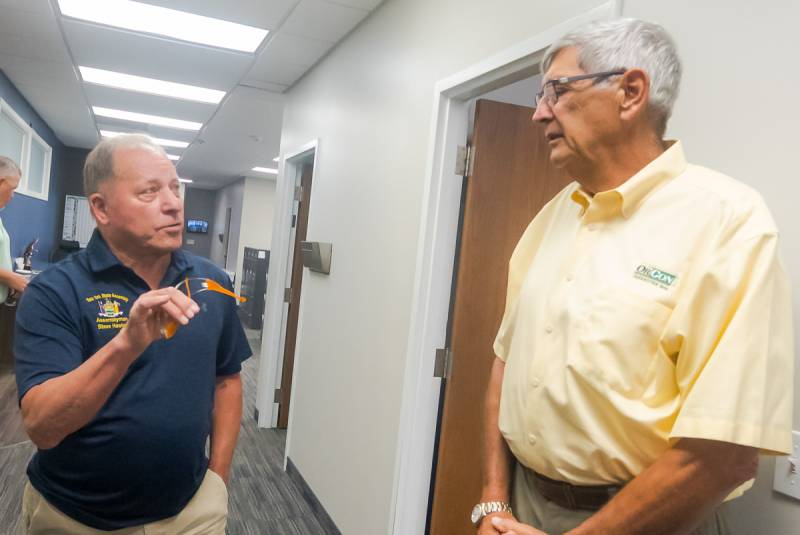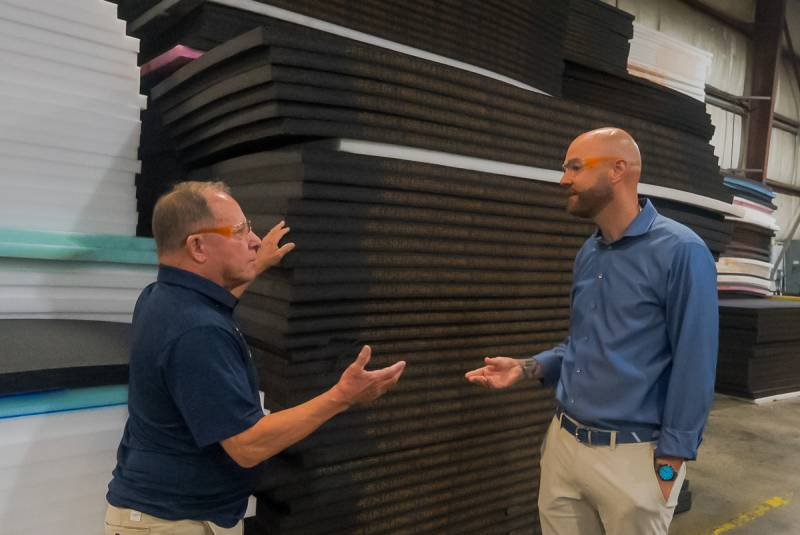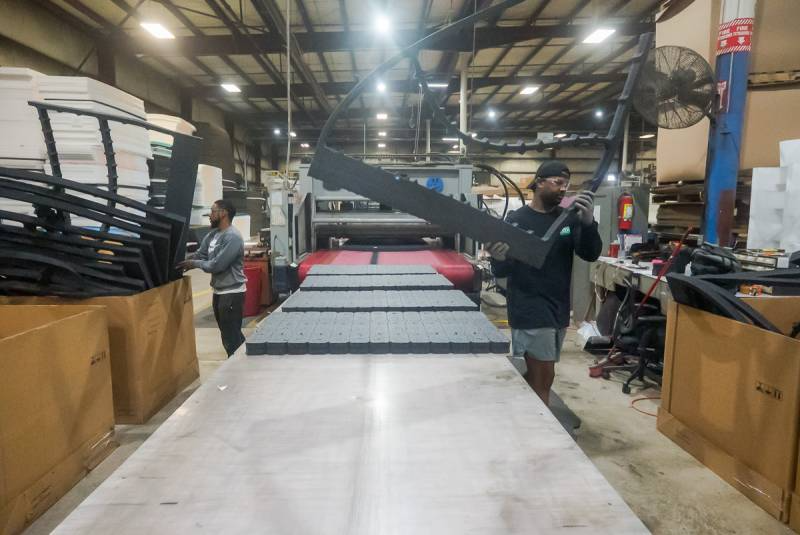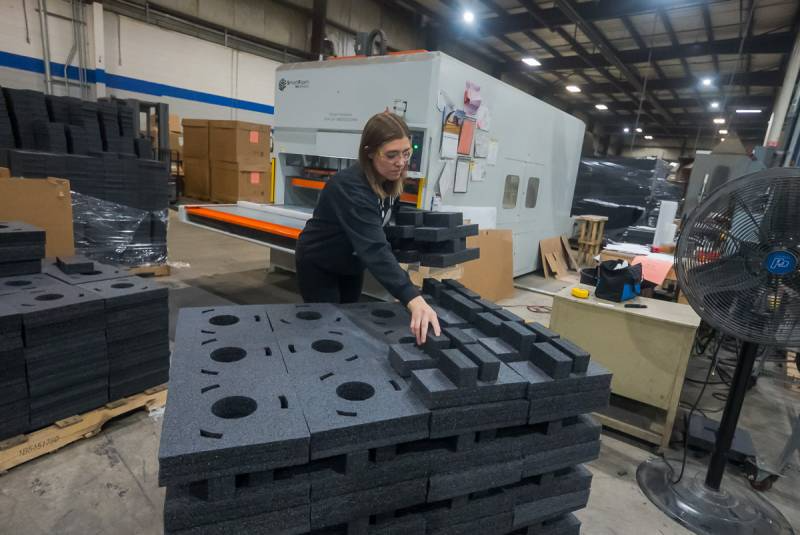Orcon Industries in Le Roy has weathered economic turbulence to grow and thrive
By Howard B. Owens | August 26, 2025
This article was originally published by The Batavian. Click here to view it on the website.

Photo by Howard Owens.
Many of the people who drive down Lake Street Road in Le Roy see Orcon Industries’ giant U.S. flag on the otherwise fairly nondescript building and wonder exactly what the company does.
Assemblyman Steve Hawley, who had never visited the business before until Monday, said he had often wondered the same thing. On his tour on Monday, he learned all about Orcon.
Mike Olson, Orcon’s president, described the company.
“We are an industrial packaging manufacturer, so primarily B-to-B, shipping business to business," he said. "It’s custom corrugated, polyethylene foams, virtually any medium necessary to keep our customers’ products safe from point A to point B when they’re shipping. We specialize in the medical industry, automotive, heavy machinery, equipment, CNC machines, and things of that nature. Optics, defense and aerospace, we do a lot of business with them, custom cases and things like that.”
Olson noted the company also operates a wood products division on Church Street in Le Roy, which produces crates and pallets, and sometimes assembles packages for clients to streamline their shipping processes. Orcon has engineers on staff, including graduates from the RIT Packaging Science program, and maintains ties with the school.
Bruce Olson, founder and chairman, recounted Orcon’s history, beginning in 1984 in a small Rochester facility that once served as the city morgue, before moving first to Batavia, in the Harvester Center, and then building the Le Roy plant, which now covers about 98,000 square feet with manufacturing and office space. The company’s wood shop down the road adds another 30,000 square feet.
Over the years, Orcon survived the decline of major customers, including Kodak and Xerox, by evolving its product lines and broadening its client base.
“Having Kodak Xerox disappear on us and still survive is a testament, honestly, to the folks that are still here,” Bruce Olson said.
He credited creativity and engineering for the company’s longevity, along with early adoption of ISO certification to help break into new markets.
Orcon recently acquired a competing foam company, expanding their product offerings and tightening space on their manufacturing floor. The company isn’t married to any one product, focusing instead on solving customer problems—sometimes with wood, sometimes with high-tech plastics. Orcon also runs a molded pulp company, FiberCel, with locations in Portville and Cookeville, producing packaging from recycled materials for business clients.
While most packaging solutions involve standard boxes, Orcon specializes in what goes inside the box, emphasizing technical inserts and custom kitting.
Bruce Olson said the packaging industry is currently seeing a downturn, with volume off seven to ten percent and margins even lower. He described meetings with corrugated box suppliers reporting similar declines, both locally and in the Boston area.
In the conversation, Olson acknowledged that corrugated packaging is often discussed as a little-known economic indicator. When demand for corrugated boxes drops, it typically signals broader weakness in manufacturing and retail, since boxes are used to ship nearly every kind of product. Recent reports confirm these trends, citing box shipments at their lowest levels since 2015 and industry-wide concern about retail demand and economic growth.
Despite these challenges, Olson expressed optimism for Orcon and the broader economy.
He credited the company’s recent acquisition and changes in trade policy for positioning the firm well as industry grow in the U.S.
“We’re optimistic with what’s going on," Olson said. "Trade policies that reward companies to stay in the United States give us an opportunity to come back,” he said.
Orcon currently employs 95 people. In the late 1990s, before the decline of Kodak and Xerox, the company employed 125 people.
The company runs first and third shifts, with plans to possibly add a second shift. They lost a major healthcare client to Mexico a year and a half ago, primarily due to labor costs, but still produce for the local division when possible.
Bruce Olson said, “We’ve got a responsibility to our employees, to our customers and our community, and that doesn’t mean you’re always going to have the lowest price. I call it economic patriotism.”
Assemblyman Hawley emphasized the importance of keeping jobs local.
“We need to keep people here. We need to keep our family, neighborhood, and everybody else here working.”
Bruce Olson concluded, “If our leaders explained to people that we have to have these certain businesses in our country, national security issues, that maybe you’re going to pay more for that, but the consequences of not having a hello pandemic, of the risk that we were at—unbelievable the domino effect. And people will respond to that.”

Photo by Howard Owens.


Additional Info
Related Links : https://www.thebatavian.com/howard-owens/orcon-industries-in-le-roy-has-weathered-economic-turbulence-to-grow-and-thrive/644651
